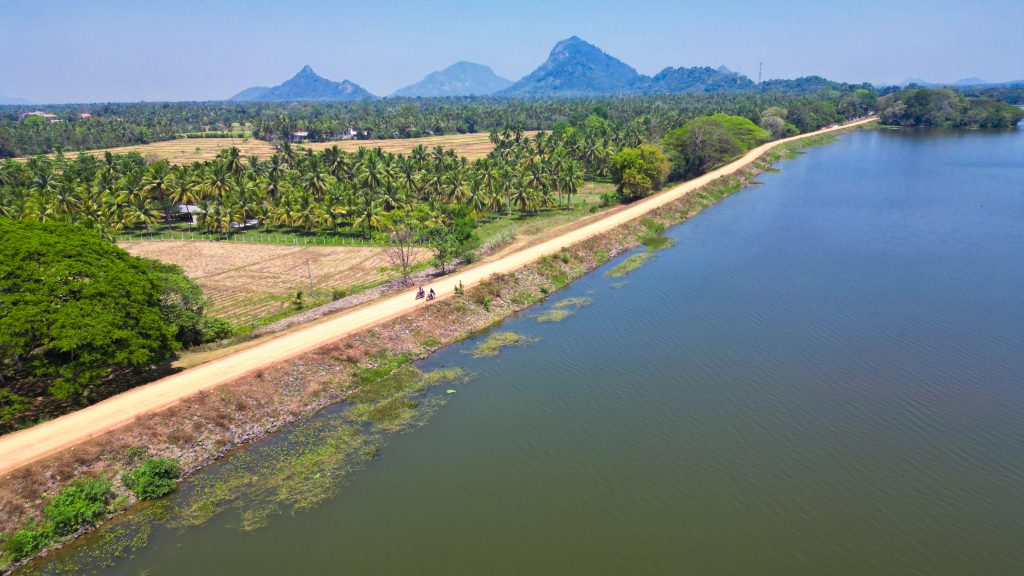
Ibbagamuwa Lake, situated in Sri Lanka’s North Western Province, is a reservoir of historical and cultural significance dating back to ancient times. Constructed during the Anuradhapura period, which spanned from the 3rd century BCE to the 10th century CE, this reservoir exemplifies the advanced hydraulic engineering skills of the ancient Sri Lankan civilization. Its primary purpose was to support agricultural activities by ensuring a reliable water supply for rice cultivation and other crops essential for sustaining local communities.
Architecturally, Ibbagamuwa Lake features well-designed bunds and spillways that efficiently manage water flow and storage. These engineering marvels not only highlight the technical prowess of ancient Sri Lankan engineers but also underscore their commitment to sustainable water management practices, crucial for maintaining agricultural productivity over centuries.
Beyond its practical role, Ibbagamuwa Lake holds cultural significance as a site integral to the region’s historical and religious practices. It has served as a focal point for communal gatherings, agricultural rituals, and other cultural ceremonies, reflecting its deep-rooted connection to local traditions and societal cohesion.
Ecologically, the reservoir supports a diverse range of wildlife and bird species, contributing to the region’s biodiversity. The surrounding wetlands and vegetation provide habitats and ecosystem services that benefit both wildlife and neighboring communities, enhancing the ecological resilience of the area.
Today, Ibbagamuwa Lake continues to play a vital role in local agriculture, providing essential irrigation water to sustain crop yields and livelihoods. Efforts to preserve and manage its water resources sustainably are ongoing, ensuring that this ancient reservoir remains a valuable asset for future generations, balancing historical heritage, cultural practices, and environmental stewardship in the modern context.
